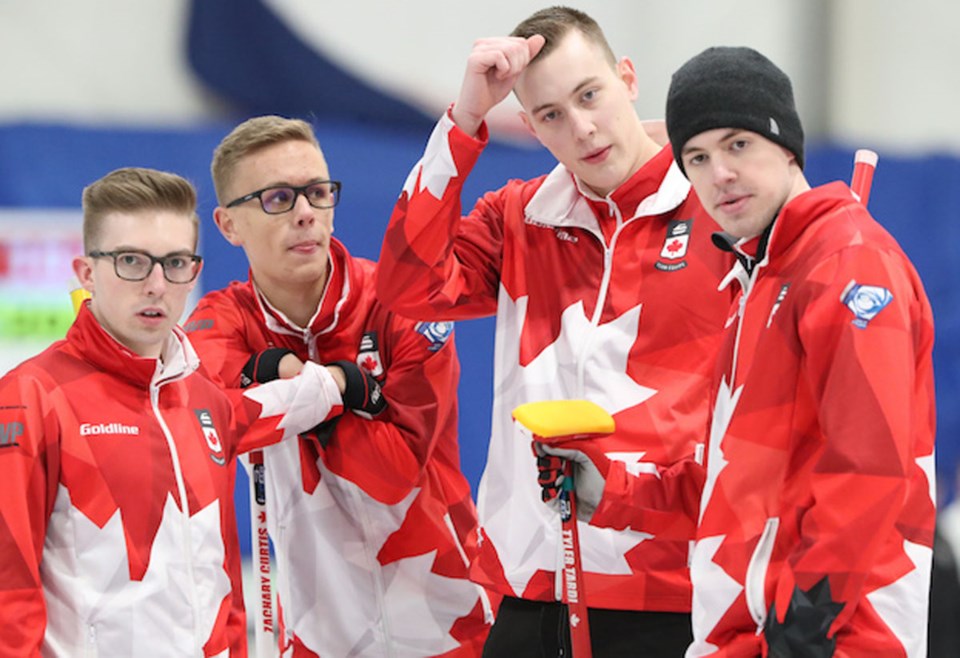As part of Canada’s Tyler Tardi rink, New West’s Sterling Middleton has enjoyed the perks of winning.
Now he knows the peak.
The Langley-based Tardi rink bested Scotland’s Ross Whyte Team 6-5 last week for the men’s world junior curling championship title in Aberdeen, UK.
Considering the litany of titles the crew has won, this one is definitely different.
It took an extra end, but the Canadian team edged out the host, Scotland’s Ross Whyte rink, 6-5 for the top prize on Saturday.
While they trailed twice, 1-0 and 2-1, early, Canada gained temporary control with three points in the sixth end, followed by a steal of one in the seventh. Ahead 5-2, the Tardi team witnessed the Scots rally, counting a single point in the 10th end to tie it 5-5.
On the last rock of the extra end, Tardi’s draw was good enough to score one point and give Canada the win.
“At the worlds it was really, really fun to go play. Of course, Scotland, being the birthplace of curling with such deep history there, was a cool place to see where the sport started,” said Middleton, a second-year student in Douglas College’s sports science program.
“(Scotland) had probably 100 times more fans than we did. They were really loud and rowdy and made a lot of noise for them,” he noted. “We didn’t let it bother us; we just did our own thing and got a little bit of a lead early and that kind of quieted down the crowd a bit. All in all, it made for a very exciting game.”
The Scottish comeback, while it didn’t rattle the Canadians, underscored the intensity of the play at that level, Middleton said.
“The 11th end wasn’t looking too good for us halfway through, but we made our last couple of shots and at the end of the day Tyler had an in-turned draw to the four-foot (line) with backing. If there’s a shot to win the world championship, that’s kind of the shot you want to have.”
Having had no practice time prior to the tournament, due to a harsh winter storm that hit the area, the Tardi rink had to adjust to the ice and competition on the fly. No problem.
“We have our game plan and we have our strategies, and we play what works for us,” said Middleton. “Some countries were more aggressive, some more defensive playing against us, but we didn’t change anything. We adapted to whatever the opposition wanted to play us.”
Another factor was the team competed at last year’s world juniors, where they finished fifth after losing a tie-breaker.
“It helped us a ton. There were a couple of the same teams were there, so we were familiar with how to play them,” said Middleton. “It’s not always going to be a struggle but a distraction being Team Canada, the team that everybody wants to beat. We had a little bit more time to prepare this year and just changed a couple of things, and it obviously paid off in the end.”



